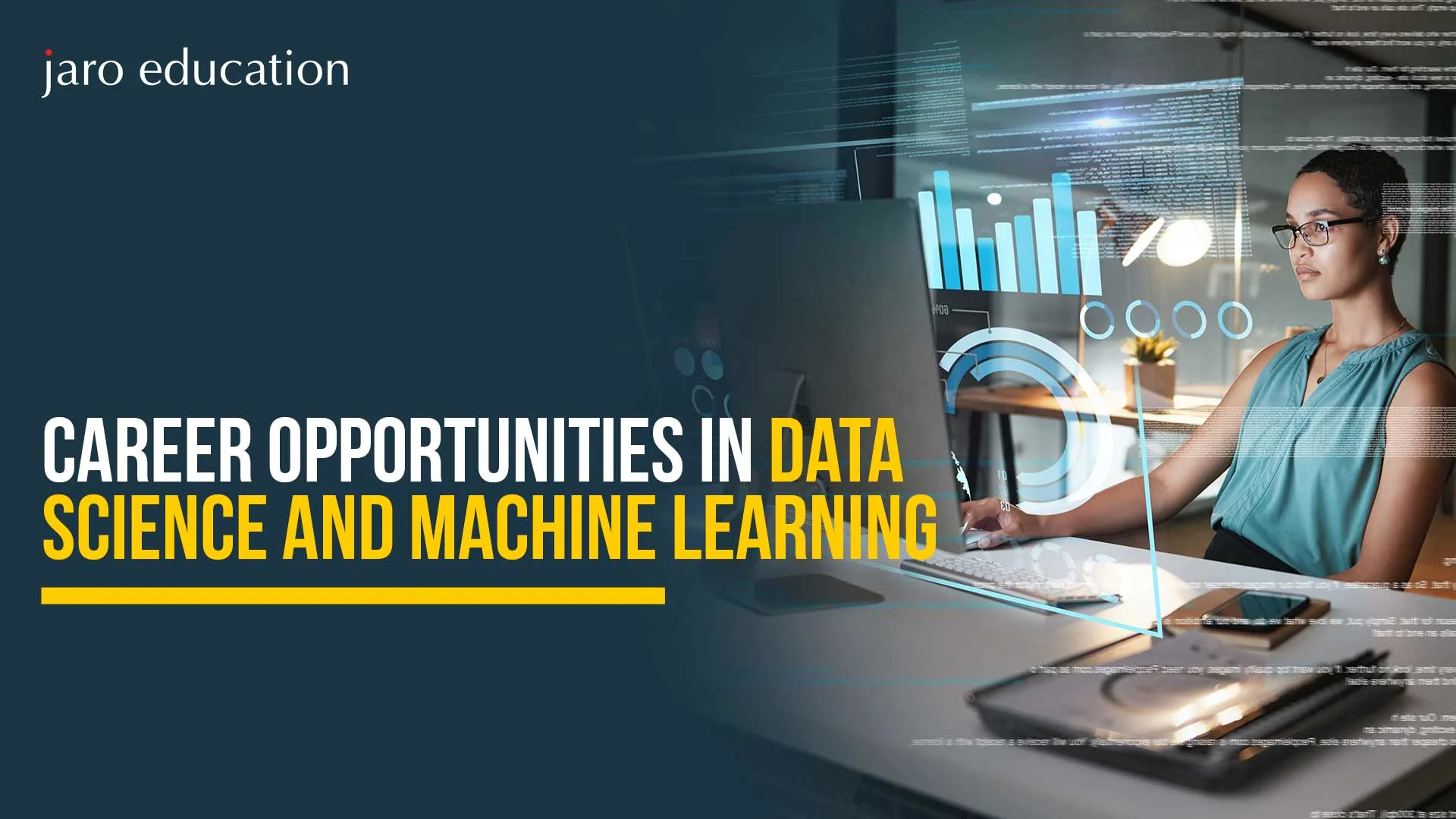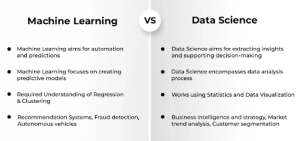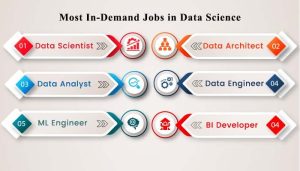Career Opportunities in Data Science and Machine Learning

Table Of Content
- What is Data Science and Machine Learning?
- Is Data Science and Machine Learning the Same?
- Top Career Opportunities in Data Science and Machine Learning
- Conclusion
Have you ever been curious about how Netflix tells you what your next binge-watch will be? How banks can easily detect fraud in real time, or the everyday wonders of the duo we now call data science and machine learning? In 2026, while these fields are now the base of not just healthcare, finance, and retail, but really every industry, they have just become the hot topics of conversation.
The demand for professionals to transform data into value and insight has never been stronger. Organizations that rely on the use of data science and machine learning are investing huge amounts to look for talent who can bring together technical process and problem-solving expertise.
So, whether you are a fresher or a working professional looking to switch careers or are simply curious about where data science and machine learning can take you, this guide will help you understand everything in a detailed manner. We will give you a snapshot of what data science and machine learning are and the top career opportunities you can explore in 2026.
What is Data Science and Machine Learning?
 Let’s give you a simple definition:
Let’s give you a simple definition:Data Science is the art and science of extracting value from structured and unstructured data. Data Science merges statistics, programming, visualisation, and knowledge of the domain to create insights and facilitate actionable decisions.
Machine Learning (ML) is a subfield of artificial intelligence; it is where systems “learn” patterns from data and improve autonomously, meaning without explicit human assistance. Recommendation engines, speech recognition, and autonomous vehicles are applications of ML.
Is Data Science and Machine Learning the Same?
| Aspect | Data Science | Machine Learning |
|---|---|---|
| Definition | A broad field covering the entire data lifecycle—collecting, cleaning, analyzing, visualizing, and interpreting insights for decision-making. | A specialized discipline focused on creating algorithms that allow systems to learn from data and improve automatically without explicit programming. |
| Scope | Encompasses multiple processes: data preparation, analysis, visualization, and interpretation. | Primarily focused on pattern recognition, predictive modeling, and automation. |
| Use of ML | May or may not use machine learning depending on the problem being solved. | Machine learning itself is the core method; it’s always applied. |
| Applications | Business intelligence, data visualization, trend analysis, and decision-making insights. | Customer churn prediction, spam detection, recommendation systems, and engagement scoring. |
| Analogy | Data Science is the story. | Machine Learning is the tool that helps tell the story in smarter, automated, predictive ways. |
.blog-page h3{
font-size: 20px !important;
margin-bottom: 15px !important;
font-weight: 800 !important;
}
.blog-page h4{
font-size: 18px !important;
margin-bottom: 15px !important;
font-weight: 800 !important;
}
.blog-page h3 b, .blog-page h4 b{
font-weight: bold !important;
}
.blog-page p{
margin-bottom: 20px !important;
}
.blog-page li, .blog-page span{
font-size: 16px !important;
}
.blog-page tbody, .blog-page td, .blog-page tfoot, .blog-page th, blog-page thead, .blog-page tr{
border: 1px solid !important;
border-color: inherit !important;
padding: 10px !important;
}
.blog-page table{
margin-bottom: 15px !important;
}
.blog-page img{
width: 90% !important;
}
.blog-page ul {
margin-bottom: 20px !important;
}
@media (max-width: 600px){
.mob-t {
width: 200px;
overflow: scroll;
min-width: 100%;
}
}
Top Career Opportunities in Data Science and Machine Learning

Conclusion
Whether you are looking to start as a data analyst, want to pursue AI research, or want to get into the huge world of engineering data systems, you can check out the professional certification programme offered through Jaro Education. Our courses are mainly designed to help participants gain knowledge on the latest technologies and tools in artificial intelligence. With us, you also have the opportunity to network with experienced professionals from the field and learn from their experiences.
Frequently Asked Questions
Data science uses data to identify trends, insights, and knowledge. Machine learning builds algorithms that learn from data and make predictions.
They’re both important, so it depends on your interests; choose data science if you like analysis and machine learning if you like algorithms.
Find a Program made just for YOU
We'll help you find the right fit for your solution. Let's get you connected with the perfect solution.

Is Your Upskilling Effort worth it?

Are Your Skills Meeting Job Demands?

Experience Lifelong Learning and Connect with Like-minded Professionals

